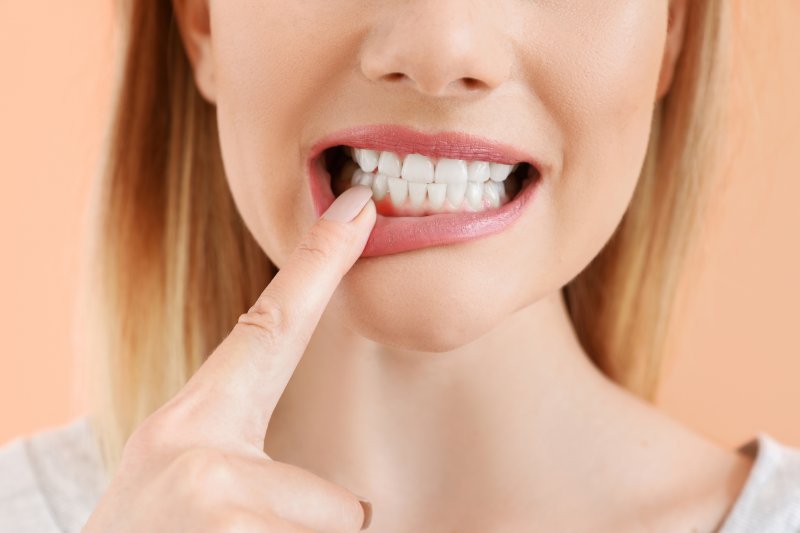
Learning you are pregnant is an exciting event. From doctor’s appointments and baby names to nursery decorations and choosing the right stroller, your mind is likely focused on everything but your oral health. The hard reality is that the hormones and changes your body experiences over the next 9 months can wreak havoc on your gum health and raise your risk for pregnancy gingivitis. To prevent this from happening to you, hear from a pediatric dentist who shares 4 things you can do to better protect your soft oral tissues.
How to Treat Pregnancy Gingivitis
Should you develop pregnancy gingivitis at any point, do not panic. Catching it in its early stages is important, hence the need to continue seeing your dentist. Fortunately, there are ways to reverse the symptoms before it worsens over time.
Your dentist may prescribe antibiotics to fight any infection that is developing within your mouth. They might also suggest a prescription mouthwash that is designed to combat gum disease. In more advanced cases where gingivitis turns into periodontitis, you may be at risk for bone and tooth loss, and your baby might experience low birth weight or preterm birth.
4 Ways to Protect Against Gingivitis
Before you begin to panic that the health of your teeth and gums are going to significantly decline throughout your pregnancy, it’s important to understand that it is natural for your body to begin producing more of the progesterone hormone. As a result, it does put you at greater risk for gingivitis, which can cause swollen, reddening gums that bleed when you brush or floss. Your gums may also recede, and you may develop bad breath. However, just because your risk increases doesn’t mean you should throw in the towel on your oral health.
As an expecting mother, how you care for your teeth and gums is the first step in protecting your child’s oral health. Throughout the next 9 months, make sure you’re taking these 4 steps:
- Maintain good oral hygiene: Make sure you’re brushing twice daily for two minutes using fluoride toothpaste. Also, floss at least once a day to remove harmful bacteria from between your teeth and rinse with an ADA-approved mouthwash.
- Incorporate healthy foods into your diet: While you may be craving chocolate and potato chips, it’s best to avoid as much sugar and starch as possible and instead, eat fruits, vegetables, leafy greens, whole grains, dairy. These are filled with beneficial nutrients that are not only good for you and your baby, but they’re also great for combatting tooth decay and gum disease.
- Don’t be afraid to gargle with sea salt: Should you begin to notice a slight reddening of your gums or inflammation, try incorporating 1 teaspoon of salt and 1 cup of warm water into your daily routine. By swishing it around in your mouth before spitting it out, this will work to help your gum tissue and reduce swelling.
- Keep your regular dental checkups and cleanings: Just because you’re pregnant doesn’t mean you should skip out on your six-month checkups. By visiting your dentist throughout your pregnancy, you can be sure that your oral health is in check and no problems are developing that could negatively affect you or your baby.
Pregnancy gingivitis is preventable. Knowing how to care for your teeth and gums over the next 9 months is something you should discuss with your dentist, so if you have any questions or concerns, don’t hesitate to ask.
About the Author
At Brush Pediatric Dentistry, Dr. Mira Albert is a pediatric dentist who works closely with a team of expert dental professionals and staff to ensure the smiles of infants, children, and teens remain healthy and beautiful as they grow. Offering a wide array of comprehensive services, she is also committed to providing valuable patient education to both kids and their parents to ensure better oral health for everyone. If you are pregnant and would like some additional tips to safeguard your smile, contact us at (630) 504-2223 to learn more.
